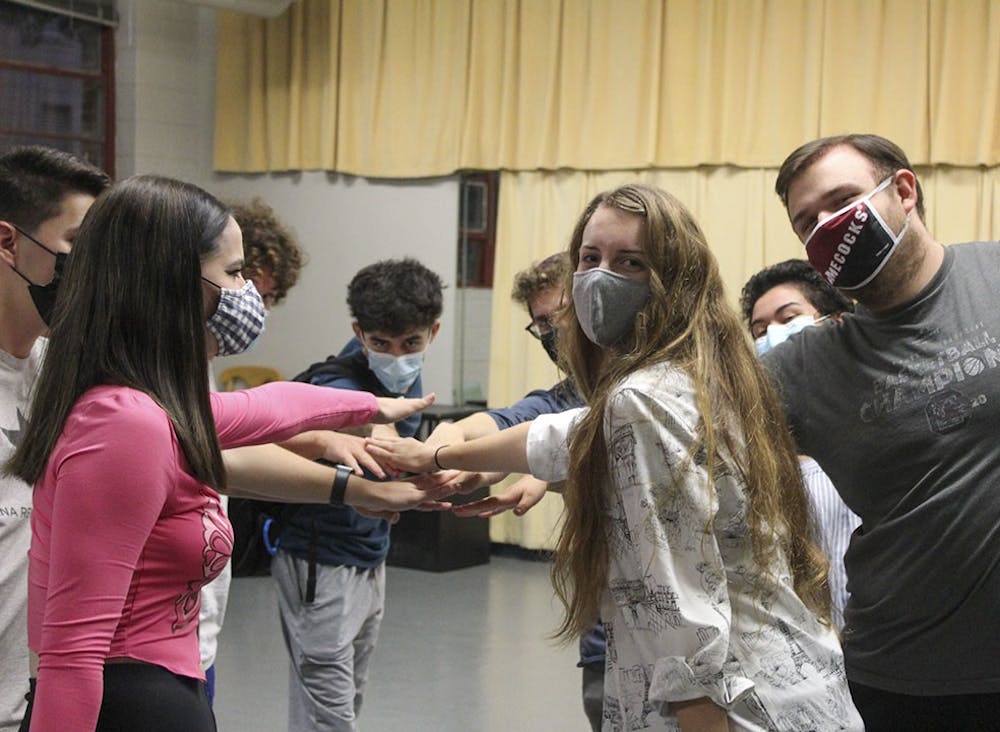The size of the University of South Carolina’s student body might make it daunting to meet new people and find a niche. Within the USC Department of Theatre and Dance, traditions such as Circle Night and shared superstitions allow students to create a community where they belong.
Circle Night occurs before the opening night of a performance, with theater majors and minors, donors to the program and professors being invited to the last dress rehearsal of the process.
It is a time of unity for the department, where everyone can gather and watch a USC show, sometimes for the first time. Following Circle Night, there is typically a student-only party, according to Cameron Giordano, a fourth-year theater student.
Jesse Breazeale, a fourth-year visual communications student with a theater minor who has attended the parties since their freshman year, said it's a way to celebrate the difficult work the students contributed to in the past month. At this gathering, Breazeale said students, both in and out of the show, can socialize with one another, discuss the performance and feel more connected to the theater community.
Giordano said because of these traditions, those attending bond over the show.
“I am at a Circle Night party, and I'm with another person that I did not even know 20 minutes ago, but I know, we're both a part of this community. We both are part of the Circle Night. So, obviously, we both matter in the context of the bigger community,” Breazeale said.
The OverReactors Improv, the student-led improv theater troupe at USC, also employs traditions that help students get to know one another.
Breazeale, who served as the troupe’s president last year, said one of the club's main traditions is that at the end of each open rehearsal, everyone forms a circle and acquaints themselves with the person on their right and says “got your back” to them. The significance of this tradition is that it assures students there is someone on campus they can turn to.
“When we’re in a scene, even outside of scenes, even just outside of improv, we have each other’s backs and we’re supporting each other at all points," Breazeale said.
Alongside traditions, superstitions within the department are shared collectively among students and faculty.
Superstitions, such as not whistling in the wings or backstage and refraining from saying "Macbeth" while in rehearsal for a show (referred to instead as "the Scottish play"), are widely acknowledged by many, including Lisa Gavaletz, an instructor and production stage manager for the university.
The superstition of whistling backstage originated in the 17th century with sailors, who worked as stagehands. They provided cues by whistling, and a misinterpreted whistle could lead to dangers onstage.
The fear of uttering "Macbeth" in the theater dates back to when it was first performed in 1606, and its productions were afflicted by numerous accidents, with cast members constantly getting sick.
Gavaletz said through these long-lasting superstitions, there is a common ground established between actors and technicians. As a result, a universal experience is shared and expressed throughout the department. Believing in these superstitions reinforces that students are a part of a community even larger than the university itself.
"The theater community often looks at itself as a family," Gavaletz said. "It doesn't matter if you are tall, short, if you are skinny, if you are not skinny, what skin color you have, what sexual orientation you are, what religion you may or may not follow – the theater has always been incredibly accepting."
These traditions and superstitions act as a building block, which the students and faculty utilize to cultivate a family out of mere strangers. In a campus of more than 34,000 students, the theater and improv organizations at USC prove there is a community here that has "got your back."

